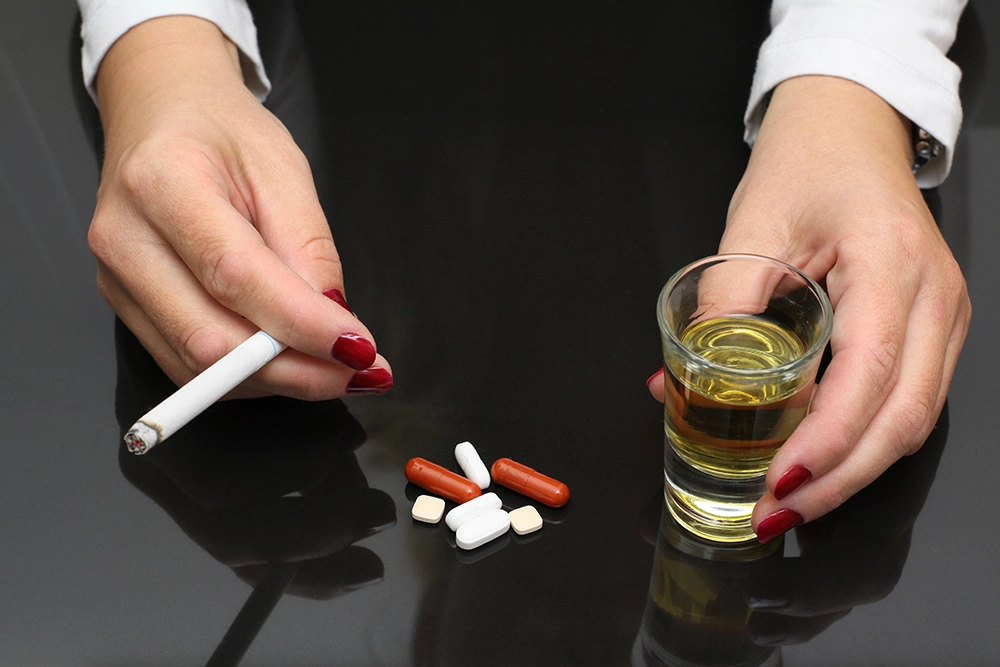When substance abuse issues appear for a loved one, it is important that the entire family feels supported. Family counselling for addiction in Toronto is a way to ensure that family dynamics do not suffer while one member is going through a difficult time. Addictions are not easy to overcome alone, and this is where family counselling and group support becomes important.
What is Family Counselling for Addiction?
Addictions can feel like they are deeply personal issues, and people with addictions do not want to expose these issues to their families. What they are blind to, however, is that loved ones can see through their façade and want to help them through this difficult situation.
Family counselling for addiction in Toronto can ensure that the persons with addiction are aware of the impact of their choices on their families and that their families can support them and each other.
Family counselling work with the ideology that the families of persons with addictions will be able to support their loved one in a positive way. Likewise, it is not just the family member who becomes damaged through their addictions, and families also need to be supported through this difficult time.
What Can Counselling Offer the Families?
If the family decides that participating in counselling together with your loved one will be the most beneficial to the lives of all persons affected, you may wonder how it will directly benefit you. The most important part of counselling is not that just the person with an addiction who is supported, but that the family can work out their problems with this situation also.
Family counselling offers the group a safe space to speak about their thoughts, feelings, and concerns. It becomes difficult in personal settings to discuss these feelings without having someone feel like a target. But with fully trained staff members mediating these discussions, this will be avoided.
An open family discussion will allow each other to see how they are being affected by these issues. When someone other than yourself is dealing with addiction issues, many prefer to suffer in silence instead of communicating their thoughts.
It is important to know that others feel the same way you do, and know that your worries are supported and not being ignored. The ratio of staff members to counselling clients will always be heavier in favour of the centre, to ensure the amount of support necessary for the family is possible.
By dealing with addiction not as an inherently personal issue, but as something that affects the entire family, everyone’s thoughts and concerns are confronted. Personal development will happen not only for the person with addiction but for everyone.
Through participating in family counselling sessions, each member will come away feeling more understood, more supported, and in turn, become stronger together than they were apart. This is certainly something that families dealing with addiction should take advantage of.
Why Support from and to the Family is Important
As a disease, addiction’s effects are not limited to the individuals who are trying to recover from it. The family is also put in a lot of stress because of addiction. Persons with addiction problems need to be assisted into recovery. Their families also need help in overcoming this crisis as well.
Family members may begin by learning as much as they can about how they can help their loved one overcome addiction. When more concerned family members are involved and learn about addiction, then they will be better equipped to guide the person with addiction problems to recovery successfully.
It is normal for family members to feel hurt, angry, and fearful of what may become of their loved one with an addiction. Most families fear that the addiction can consume the life of their loved one and eventually take it. That’s why family counselling is important for everyone involved.
Family counselling is more than helping the person with an addiction to recover and for them to maintain their sobriety. It is an opportunity for the whole family to express their feelings in a healthy way and address it. The feelings can be anger, shame, and even trauma. They may even blame themselves why their loved one resorted to drug use. These need to be addressed properly.
Addiction treatment usually happens after years of drug use, irresponsible behaviour, and deceit. Most often, family members feel mutual resentment for one another. This has to be dealt with in therapy for the healing process to take place for everyone involved.
Family counselling can offer support and the opportunity for family members to participate in sessions and workshops. These activities will allow them to receive useful information on what addiction is, its effects, and how a person can recover from it with the help of their families. Of course, it is also important that each family member know his or her role, how they can set boundaries as well as end codependency and enabling harmful behaviours.
Family members during the sessions can talk about their experiences with addiction. The patient can then be given the chance to listen to their family’s concerns and fears. In the same way, the recovering addict can also share their thoughts and feelings in a healthy environment where they won’t be judged. It is important that everyone gets the chance to rebuild trust and to avoid any behaviour that may affect the recovery of the patient.
Another important thing that families can learn is how to support their loved one once they are discharged from the treatment facility. Support groups and expert staff members are available to provide support and guidance for families. They are important in the continuing care that the recovering addict needs.
Everyone in the family can also take advantage of the Internet and how easy it is today to connect to support groups either locally or in any part of the world. This can provide the opportunity to share experiences as well as give and accept comfort from other members.
After treatment, the recovering addicts need utmost support from their families. Once they are out of the rehab facility, they will have to start their journey toward recovery. It is important that the family continues to be supportive to ensure the recovery from drug addiction a success.
Related article: What is Grief Counselling and Is it Helpful?
How to Offer Support to a Loved One with Drug Problems
Having a loved one with drug problems can be overwhelming for anyone. You want to support them in the best way possible. You may even get them to a rehabilitation centre to address the addiction. It’s only normal that any family member feels anxious if the treatment will be successful.
What you have to remember though is that it is only the first step to recovery. What happens outside of the rehab after the treatment is done plays a big role in maintaining the sobriety of the loved one with drug problems.
Recovery can be difficult for a person dealing with addiction. That’s why families should also be prepared for relapse. Be patient and compassionate for your family member who is trying to recover. Support them at each attempt they take to get sober.
Supporting a Loved One During Treatment
Ultimately, the success of addiction recovery is in the recovering addict’s hands. With proper treatment and determination to overcome the disease, it will be possible. However, do keep in mind that support from family can increase the chances of success when it comes to sobriety for the long term.
After the treatment, your loved one will be faced with many challenges as they have to confront their addiction. Here are some of the things that you can do for your family member to show your love and support.
Learn and Understand Addiction
Among the best things that family members can do to support their loved one is to learn what they can about addiction as a disease. The more you know and understand how it can affect the brain of an addict, it will become much easier for you to be compassionate and supportive whenever your loved one is dealing with their challenges while they are recovering.
Consult with a Therapist
To be able to support your loved one, you should also be in a healthy emotional and mental state. It can be a very stressful time for everyone and you should be able to make sure that you take care of your well-being as well.
Try going to a therapist for your own sessions so you can talk about your own challenges. There, you can express any frustrations that you may have. It will also be a good opportunity to release negative feelings in a healthy way.
Write about Your Feelings
While your loved one is undergoing treatment, it may be that you’ll have limited communication with them. This is so that they can focus on their recovery. In the meantime, you can write about your feelings for them. Express your support and love for them and help them in building back their self-confidence.
Write to them about their strengths and how courageous they are for confronting their addiction. Also, you can tell them about your own progress. Write to them that you are also learning what you can about addiction so as to better understand what they are going through.
Attend Family Counselling for Addiction
There are many addiction treatment facilities nowadays that provide family counselling for addiction. As much as possible, attend these sessions so that you can learn more about what you can do to support your loved one.
Also, it will be a great opportunity for your loved one to see their family being present in family counselling sessions. It will give them a boost knowing that the family is behind them on their road to recovery.
Stop Enabling Your Loved One
You may not be aware of it but you could have been enabling the harmful behaviours of your loved one who has an addiction problem. An example of this is when your loved one is trying to convince you to take them out of treatment.
It may be difficult to see them in agony but you know deep in your heart that it is for their own good. You have to be strong and courageous as well because seeing them plead to you is going to break your heart. But be firm that everything that they are going through will result in a successful recovery from addiction.

How to Support a Loved One After Treatment
The recovery for addiction is not limited to the time spent in rehab. It is a lifelong process for a person with an addiction. The most challenging times will be the first year from the treatment. Recovering addicts will be needing all of the support that is available from their family and friends.
You don’t need to be there 24/7 to show your support to your loved one. Simply saying that you’re there to listen is already a lot. It would also be helpful if you can ask them about how they want to be supported. Do this while still encouraging them to take full control of their lives.
Here are some of the concrete ways that you can show your support to a loved one who is recovering from drug addiction.
Encourage them to Remain Sober
Talk to your loved one that abstinence is the best way to make sure that their recovery from their addiction will be successful. Try not to drink or smoke while your family member who is recovering is around. You’d be unwittingly tempting them to go back to their vices.
What you can do instead is to help them discover other activities that they will enjoy. It could be sports and you can play it with them. You can also introduce them to support groups where they can express their feelings about their recovery.
Help them in Finding the Right Support Group
Get to know your loved one and their philosophy so that you can help them look for a support group that will fit their frame of mind. You can even go with them during the support group sessions so that you can see for yourself how it goes.
It’s okay to shop for support groups. That’s the only way that you and your loved one can find the right group to support their recovery. You don’t have to go to each of the meetings yourself. You can talk to other family members and set a schedule for those who are willing to go with the person in recovery.
Share Positive Coping Techniques
You may have your own coping techniques when you’re under a lot of stress. Talk to your loved one about how you do it so that they can try it for themselves. You may also read about various methods for coping in difficult times. Share it to your loved one so that they’ll have new ideas on how to deal with their challenges.
It is also important that you follow up on them to see what works. When things get tough, remind them that there are other techniques that may work. Always make them feel that there is hope and that they can overcome their addiction through positive ways.
Be Mindful of Relapse Signs
Some of the things you will learn while reading various material about addiction and recovery are the relapse signs. You should know this so that you can immediately detect if your loved one is going back to their old habits.
Have a plan if and when the relapse happens. It’s not that you don’t trust that the person will stick to the recovery plan but just be prepared for the worst case. Don’t blame or shame them if they have slip-ups. Instead, remain supportive especially if they show remorse and want to get back on the right track.
Remind your loved one that they are not a failure when they have a relapse. What’s important is that they get back on their feet and try again. Always assure them that you’re there for them every step of the way and that you believe that they can successfully overcome their addiction.
Benefits of Family Counselling
There are many faces to addiction: the teen who cannot go to school in the mornings without smoking a joint, the overwhelmed mom whose one glass of wine a night balloons into full-on alcoholism, the corporate executive who tries – with ever-declining success – to mask a cocaine addiction. Behind the faces are stories, and these stories involve close friends and family members. These are human beings whose lives have been impacted by addiction.
In the past, it was the norm for people undergoing addiction treatment to be isolated from their families for some time. While there are still some facilities that follow that practice to varying degrees, an ever-increasing number of addiction treatment centres are making family counselling an integral part of their programs.
Family members play a pivotal role in an individual’s journey as an addict. Usually, this is because they are the ones caught in the crossfire: addicts often steal money and belongings in order to fund their addictions, and they lose their sense of responsibility for work, family, and other important things as the addiction takes centre stage in their lives. In many cases, the drugs themselves – or their withdrawal symptoms – result in addicts behaving in an aggressive or abusive manner toward loved ones.
This takes an inevitable toll on relationships, and this toll often goes far beyond the concept of hurt feelings. Addictions can destroy trust and tear families apart. Couples become separated, parents lose custody of their children, and people move to different cities because they fear for their safety.
This erosion does not only happen to the relationships between the addict and the family members; it happens to the relationships that family members have with each other. As the addiction becomes the central focus in the family, individuals start neglecting themselves and their relationships. If this is not adequately addressed in family counselling, families can continue to dissolve even after the addict has undergone treatment.
The purpose of addiction treatment is twofold: to safely get the substances out of the addict’s system, and to equip the recovering addict with the skills needed to survive in the outside world without drugs or alcohol. This includes ensuring that a support system is in place for them – support that usually exists in the form of family. If family support is absent, the risk of relapse is much higher.
But how can family members be expected to act as support when they have been damaged to the point of needing support themselves? Addiction treatment centres are placing increasing emphasis on treating the family unit as a whole, rather than just the person with the addiction. This has all kinds of benefits:
- The family members are given professional guidance to rebuild their trust in one another
- Family conflicts that may have contributed to the addiction are resolved
- The person with addiction and family members learn new and better ways to deal with stressful situations
- The recovering addict and family members reach a point of being able to forgive each other and themselves for things that have been said and done
- The recovering addict develops the ability to ask for help from family members instead of turning to drugs or alcohol when things get rough
- Family members learn how to give themselves priority and rebuild relationships with each other that were neglected during the period of addiction
Takeaway
It has been said that no man is an island. This is especially true for those trying to recover from addiction. Human beings are social beings who rely on each other for their individual and collective well-being. Addicts turn themselves into islands, though, by alienating the people they love. By incorporating family counselling for addiction in recovery programs, addiction treatment centres are helping individuals foster productive, loving family relationships that can last a lifetime.
Related article: Drug & Addiction Counselling | Does It Work?






